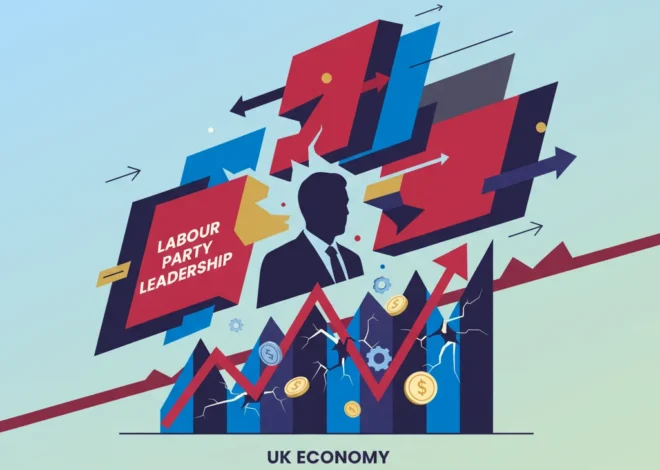
The Riyadh Reroute: Why Global Finance Talent is Chasing Trillions in Saudi Arabia
In the world of high finance and strategic communications, careers are often built in the towering skyscrapers of New York, London, or Hong Kong. Yet, a powerful new current is redirecting the flow of top-tier talent and capital. Its destination? The heart of the Arabian Peninsula. Rutherford Hall, a critical communications strategist, laid this reality bare in a recent, candid account for the Financial Times, admitting with stark honesty his motivation for moving to Saudi Arabia: “Yes, I’m in Saudi for the money. Why else would I go?”
This single statement cuts through the polished corporate narratives and gets to the core of one of the most significant economic transformations of our time. It’s not just about a high salary; it’s about being at the epicenter of a nation deploying trillions of dollars to fundamentally reshape its economy, society, and its role on the world stage. For professionals in finance, investing, and technology, the opportunities are on a scale rarely seen before. But this gold rush comes with its own complex set of questions, challenges, and ethical considerations.
This article delves into the forces driving this massive talent migration, exploring the ambitious strategy behind Saudi Arabia’s Vision 2030, and analyzing what this shift means for the future of the global economy.
The Gravitational Pull of Vision 2030
The primary engine of this transformation is Saudi Vision 2030, a sweeping strategic framework designed to wean the kingdom off its historic dependence on oil revenue. This isn’t just a policy paper; it’s a multi-trillion-dollar roadmap to create a vibrant, diversified economy driven by investment, private-sector growth, and non-oil industries. The sheer ambition is staggering, funded by the nation’s colossal Public Investment Fund (PIF), one of the largest sovereign wealth funds in the world.
For Western expatriates like Hall, the attraction is the chance to work on “giga-projects” that would be unimaginable elsewhere. As he notes, the work involves long hours and immense pressure, with a pace that reflects the urgency of the national mission. He describes a work environment where a 75-hour week is not uncommon, a testament to the scale of the task at hand (source). The kingdom is essentially building new cities, new industries, and a new economic identity from the ground up, and it needs the world’s best minds to do it.
Below is a snapshot of the key pillars fueling this economic revolution, which are attracting immense foreign investment and talent.
| Vision 2030 Pillar | Description & Key Projects | Impact on Finance & Investing |
|---|---|---|
| Economic Diversification | Reducing oil dependency by developing sectors like tourism, entertainment, logistics, and manufacturing. Projects include NEOM (a futuristic megacity), the Red Sea Global tourism development, and Qiddiya entertainment city. | Creates new asset classes for investing beyond energy. Drives growth in the Saudi stock market (Tadawul) and opens up project financing and private equity opportunities. |
| Public Investment Fund (PIF) Growth | Transforming the PIF into the world’s largest sovereign wealth fund, targeting over $2 trillion in assets under management. The PIF is a major global investor in technology, real estate, and more. | The PIF’s global and domestic investments are a major force in international finance, influencing everything from venture capital to public markets. |
| Financial Sector Development | Modernizing the banking and capital markets infrastructure. A key goal is to foster a booming financial technology (fintech) ecosystem. | Massive opportunities for fintech startups, digital banks, and companies specializing in payments, blockchain, and wealth management technology. |
| Social & Cultural Liberalization | Improving quality of life to attract and retain talent. This includes lifting the ban on cinemas, hosting major sporting and music events, and increasing women’s participation in the workforce. | Enhances the kingdom’s appeal for expatriate professionals and creates new consumer-facing markets for investors to explore. |
This comprehensive strategy is what makes the opportunity in Saudi Arabia so unique. It’s not just one industry; it’s a wholesale reinvention of a G20 economy, creating a powerful magnetic field for global capital and expertise.
The Rejection Edge: Why Seeking 'No' is the Ultimate Strategy for Success in Finance
The Great Moral-Financial Calculation
It’s impossible to discuss the boom in Saudi Arabia without addressing the elephant in the room: the kingdom’s human rights record and the accusations of “sportswashing.” Hall himself confronts this directly, acknowledging the “obvious reputational risks” and the critical lens through which the world views the nation. This creates a complex calculus for every professional and investor considering engagement.
The decision to work in or invest in the kingdom often involves weighing immense professional and financial upside against significant ethical and reputational questions. For some, the opportunity to be part of a historic, positive transformation and to contribute to social progress from within is a powerful justification. They see a country rapidly changing, with expanding rights for women and a younger generation eager for global integration. Others remain skeptical, viewing the changes as a facade designed to attract Western capital while fundamental issues remain unaddressed. This tension is central to the modern Saudi story and a critical factor in any due diligence process, whether for a career move or a capital allocation.
This “Riyadh Reroute” of talent could have long-term consequences. It may accelerate the transfer of institutional knowledge from established financial hubs to emerging ones. It also forces a conversation about the role of ESG (Environmental, Social, and Governance) principles. Is it better to engage with and influence a nation undergoing reform, or to divest and isolate? There is no easy answer, but one thing is clear: the PIF’s growing influence on the global stock market and venture capital means that nearly every major investor is already, directly or indirectly, a stakeholder in Vision 2030’s success. The choice is no longer *if* you will engage with the new Saudi economy, but *how*.
The Digital Bedrock: Fintech, Blockchain, and a Modern Economy
A key, and perhaps underestimated, component of Vision 2030 is the digital transformation of its financial infrastructure. A modern, diversified economy cannot run on outdated systems. This has ignited a quiet but explosive revolution in financial technology within the kingdom.
The Saudi Central Bank (SAMA) and the Capital Market Authority (CMA) have been proactive in creating regulatory sandboxes and frameworks to encourage innovation in fintech. This includes everything from digital payments and neobanking to crowdfunding and robo-advisory services. The goal is to create a cashless society and a financial services sector that is as advanced as any in the world.
This is where technologies like blockchain come into play. While the kingdom maintains a cautious stance on cryptocurrencies, it is actively exploring blockchain for applications in trade finance, supply chain logistics, and government services to enhance transparency and efficiency. For professionals in the tech and trading technology sectors, this represents a greenfield opportunity to build and deploy cutting-edge systems on a national scale.
China's High-Tech Gambit: Decoding the New 5-Year Plan for a Global Economy in Flux
The Ground-Level View: Culture, Pace, and People
Beyond the multi-trillion-dollar strategies and geopolitical analysis is the human experience. Hall’s account provides a valuable glimpse into the daily reality. He describes a melting pot of cultures, with professionals from all over the world—“Brits, Americans, South Africans, Lebanese, Egyptians, Indians, Pakistanis”—all working towards a common, high-stakes goal. This multicultural collaboration is a defining feature of the new Saudi professional landscape.
The work is demanding, but Hall also points to the “warmth and decency” of the Saudi people. This narrative of a nation in flux—balancing deep-rooted traditions with a headlong rush into modernity—is a crucial piece of the puzzle. The social changes are as real and rapid as the economic ones. For those on the ground, it’s a chance to witness history being made, a front-row seat to a nation’s reinvention.
Silence in the Halls of Power: ECB Faces Unprecedented Lawsuit Over Free Speech
Conclusion: A New Center of Gravity in Global Finance
Rutherford Hall’s candid admission that he is in Saudi Arabia for the money is more than just a personal confession; it’s a reflection of a profound shift in the global economy. Capital and talent are flowing to where the most ambitious projects are, and right now, few places are more ambitious than Saudi Arabia.
For investors, finance professionals, and business leaders, ignoring this trend is no longer an option. The kingdom’s influence—through the PIF’s investments, its control over energy markets, and its giga-projects—is already reshaping industries worldwide. The “Riyadh Reroute” is not just about individuals seeking tax-free salaries; it’s a symptom of a new, multipolar world where economic power and opportunity are more distributed than ever before. The ultimate success of Vision 2030 is yet to be determined, but its impact on the flow of money and minds is already undeniable, creating a new and powerful center of gravity in international finance.


